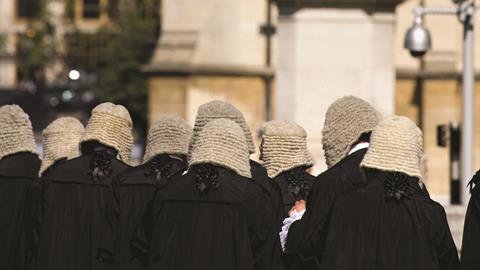Many reforms 'heralded with much fanfare' to increase the number of female judges have had little impact, according to an academic study of judicial appointments over a decade.
The research, by Dr Michael Blackwell, assistant professor of law at the London School of Economics, is believed to be the first empirical study on whether changes made to the appointments process between 1996 and 2006 have affected gender diversity.
In 1996, women represented 6% of recorders and 6% of circuit judges. A decade later, they represented 21% of recorders and 25% of circuit judges. However, Blackwell discovered 'stark' regional variations. In Wales, 4% of recorders and 3% of circuit judges were women - rising to 18% and 19% respectively a decade later. In the south east, 8% of recorders and 5% of circuit judges were women in 1996, rising to 22% and 31% respectively 10 years on.
Changes to the statutory eligibility criteria, from 10 to seven years' post-qualification experience, have had 'virtually no effect' on recorder and circuit judge appointments, Blackwell reported. Of the 1,894 recorder appointments since 1996 where the professional background is known, three of the successful applicants had less than 10 years' PQE experience. None of the circuit judges appointed had less than 13 years' post-call or post-admission experience.
Removing an age requirement for circuit judges has increased diversity, but the number of those under 45 'are so small that the magnitude of the effect is fairly negligible'.
Blackwell, who gathered data with freedom of information requests and from legal directories, said: 'Many reforms that were heralded with much fanfare as promoting diversity have had little impact. That is not to say that there were not good reasons for making some or all of these changes, but that the reason of improving diversity that was given was not achieved.'
In the judicial diversity committee's latest action plan, Lady Justice Hallett, committee chair, said the judiciary 'remains strongly committed' to increasing diversity. The committee has pledged to working with the Law Society and other representative bodies to reach more potential candidates and run more workshops to help candidates from under-represented groups prepare for the selection process.




























7 Readers' comments